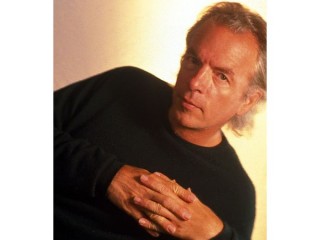
Spalding Gray biography
Date of birth : 1941-06-05
Date of death : 2004-01-10
Birthplace : Providence, Rhode Island, U.S.
Nationality : American
Category : Arts and Entertainment
Last modified : 2011-09-29
Credited as : actor, playwright,
0 votes so far
Gray grew up in Barrington, Rhode Island, with a lot of darkness. His family life was troubled from the beginning. His factory-worker father was an alcoholic, while his mother suffered from several nervous breakdowns. Later known for his ability to talk non-stop, Gray reportedly stopped talking for a year when he was child after the death of his dog. In 1967, at the age of 52, Gray's mother committed suicide.
After graduating from high school, Gray attended Emerson College in Boston, Massachusetts. He studied theatre and writing, and graduated in 1965. During this time, Gray began to perfect his monologue technique. He worked two jobs, one as a garbage collector and the other as night dishwasher at a restaurant. He learned how to turn the events of his daily life into entertainment by trying to make the cooks laugh.
In the late 1960s he moved to New York City and delved into experimental theater. He was a member of Performance Group as well as the co-founder of Wooster Theater Group, whose members included actors Willem Dafoe and Jill Clayburgh. During this time he wrote and debuted some of his early monologues including Sex and Death to the Age 14, Booze, Cars and College Girls, and A Personal History of the American Theater. All of his works were based on the details of his personal life and experiences, which became a hallmark of his style. Bridget Byrne reported at E! Online that Gray once said, "There's no area of my life that I haven't spoken about or confessed or discussed with someone."
Gray's first film roles were ones he later denied, contrary to his exhibitionist tendencies. For a short period of time he had roles in a few cheaply made, sexually explicit adult films. As his theater career gained momentum though, he was offered small roles in mainstream movies beginning in the 1980s. One of these was his role as a United States consul in the 1984 film The Killing Fields. His experiences in Thailand making the film formed the basis for the monologue Swimming to Cambodia. As a work of theater, Swimming to Cambodia won an Obie Award in 1985. Two years later it was made into the popular film directed by Jonathan Demme.
Gray was never the leading man in a film, but he made appearances in films throughout the 1990s and into the 2000s. Most of his roles cast him as a doctor or a professor, sometimes as priest or preacher. In total he appeared in 38 films, including Beaches, which starred Bette Midler; The Paper, directed by Ron Howard; and King of the Hill, directed by Steven Soderbergh.
All the while he continued to write. His published works included those based on his monologues like Monster in a Box and It's a Slippery Slope as well as a novel, Impossible Vacation. His last book, which was also a performance piece, was called Morning, Noon and Night. It detailed a day in the life of Gray and his family, including his three children and his wife. Veering from his normally cynical take on existence, Morning, Noon and Night exposed Gray's acceptance of the mundane and an almost positive outlook on life.
In 2001, Gray, who had been battling depression for years, was sent into a profound depression after a car wreck left him with a broken hip and ankle, and a fractured skull. The pain from that accident never relented; neither did Gray's depression. Even though he continued to work and perform, by 2002 he was seriously considering suicide. That year in October he was rescued from an attempt to jump from a bridge near his home. The following year he tried to jump from a ferry in New York, but was talked out of it by a friend. Five months later, on January 9, 2004, he was physically removed from a ferry by security guards. The next evening Gray missed an appointment with friends and was declared officially missing on January 11. His body was found March 8, 2004, in the East River in New York City. He was 62.
Gray is survived by his second wife, Kathie, his two sons, and a stepdaughter. As a writer and performer, Gray perfected the art of self-revelation. His ability to combine historical fact with personal idiosyncrasies created exciting and challenging theater and film experiences.
















